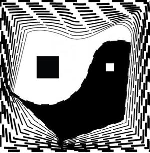 A recent study from the University of York found that acupuncture works better than ‘usual care’ at reducing depression. Usual care means drugs prescribed by your GP.
A recent study from the University of York found that acupuncture works better than ‘usual care’ at reducing depression. Usual care means drugs prescribed by your GP.
It seems unlikely that placing a tiny needle in, perhaps the foot, or arm could trigger a chain reaction that brings about peace of mind, so how does it work?
The Western scientific view is that acupuncture likely works by stimulating the central nervous system to release chemicals called neurotransmitters and hormones. These chemicals dull pain, boost the immune system and regulate various body functions. Clinical trials have shown that there is a difference in stimulating the release of the chemicals between using specific acupuncture points and sham acupuncture (which use points not recognised by acupuncturist). Yet, there is no Western scientific evidence for qi (life giving force/energy) or the pathways along which qi flows.
In Chinese medicine qi, in its most gross, material form in the body are the bones, muscles, blood and liquids. The lightest aspect of qi is Shen, or spirit. According to Chinese philosophies, it is through Shen that each individual manifests their life purpose, which is imprinted in their DNA (jing). This is closely linked to Yuan Shen, or Yuan qi.
‘By experiencing one’s Yuan Shen the unity of life is realized; the inseparable nature of life is realized; the clarity of one’s true nature is realized. By directly experiencing one’s Yuan Shen, it becomes clear what Yuan Shen is not.’ Dr David Twicken
Acupuncture can assist in releasing blocked or repressed emotions that lead to depression. Clearing these blocks makes room for insight and inspiration which motivate us to make change in our lives that allow us to live our ‘soul’ purpose.
Acupuncture theory has a unique understanding of the manifestation of Yin and Yang in the body and the energetic qualities of the emotions: joy, sadness, grief, loss, anger, frustration, thoughtfulness, worry, fear. These emotions can be released along the primary channels. But in addition there are some deeper channels, known as the eight extraordinary channels, which can have even more profound effects.
Some of these channels carry imprints from pre-natal influences. The Ren channel can carry influences from when the child bonded with its mother, so if there was a lack of bonding the adult may seek that experience in future relationships. The Du channel carries imprints from when the child moved out to experience the world. A lack of development may create someone who holds back and lacks motivation to move forward. The Wei channels assist in linking periods of our life, and so can help us release from living in the past, or facing forward too much. The Qiao channels relate to our stance in life, and so can be used with issues of self-esteem. The Dai channel is like a cupboard where we stuff unprocessed experiences.
The skilled practitioner will use the appropriate points at the appropriate time to release the body from ‘emotional baggage’ allowing them to become a fully realised individual.
Not all acupuncturists learn this more classical form of acupuncture, and so it is important that you work with a practitioner you resonate with. Call your practitioner when making your first appointment, rather than messaging, to see if you are a good fit.
